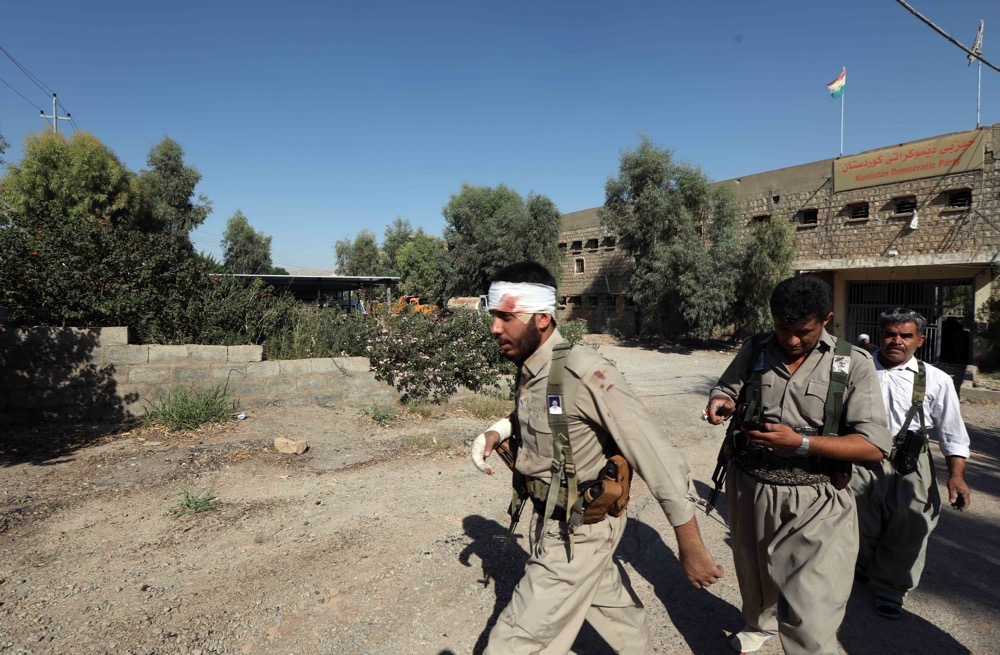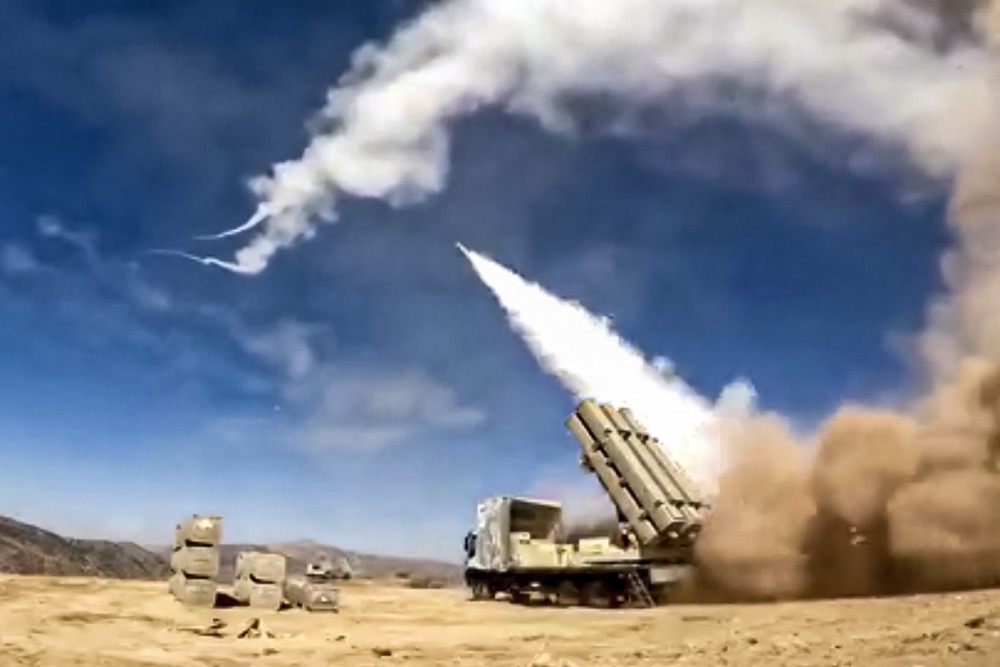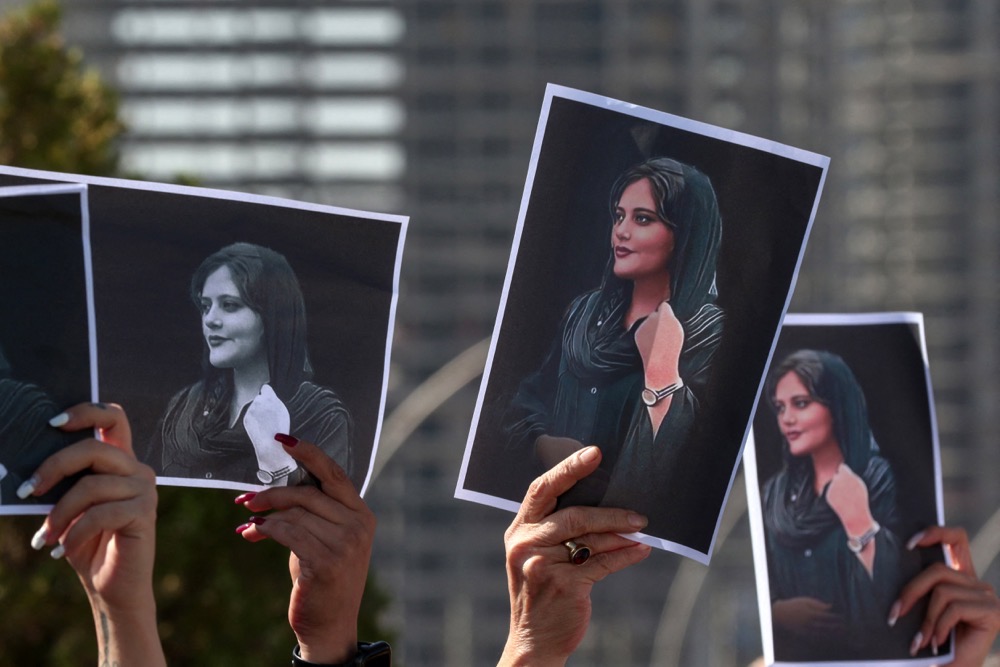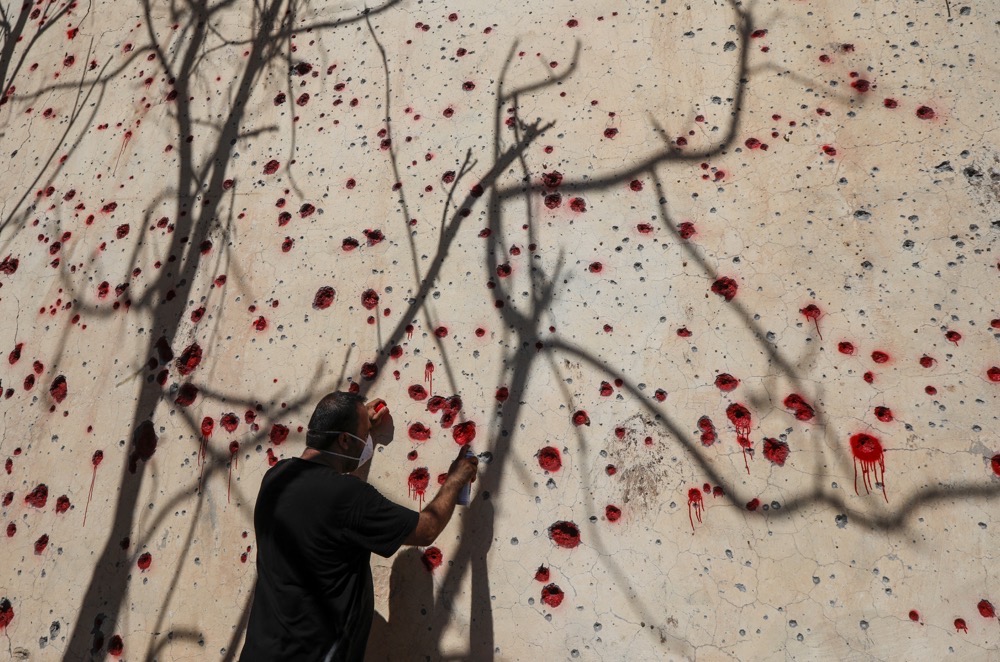MISSOURI, USA: Mustafa Hijri, leader of the Kurdistan Democratic Party of Iran, is in hiding following multiple assassination attempts and a late-September volley of missiles and suicide drones that destroyed much of the KDPI’s headquarters in Koya in the Kurdistan region of Iraq.
The attacks killed at least 16 people, including several civilians. It was not the first nor likely the last Iranian strike on Iraqi Kurdistan territory aimed at the KDPI, the oldest and largest Iranian Kurdish opposition party.
In September 2018, a similar Iranian missile strike on the KDPI headquarters killed 17 people and injured another 49, including some of the party leadership. In July 1996, Iran even invaded Iraqi Kurdistan, sending some 3,000 troops to attack KDPI offices in Koya.
Assassinations and car bombs remain the more common Iranian tactic. In 1989 and 1992, Iran assassinated two former KDPI leaders in Vienna and Berlin. Hijri is therefore correct to be concerned about his security, choosing to meet Arab News at a secret safehouse in the Middle East.
Most observers in the region believe the latest strikes constitute an attempt to divert popular attention away from Iran’s domestic troubles.
Unrest over the death of a young Iranian Kurdish woman, Mahsa Amini, at the hands of Iran’s morality police is still roiling the country. True to their usual script, authorities in Tehran have blamed the trouble on “foreign interference.”

A wounded Iranian Kurdish Peshmerga member of the Iranian Kurdistan Democratic Party (KDPI) walks inside their headquarters after a rocket attack in Koysinjaq. (AFP)
Hijri says the regime in Tehran would indeed like to provoke the KDPI into sending its forces into Iran, as it would help the ayatollahs justify this claim.
“The Iranian regime likes the idea of us sending the Peshmerga, as it gives more justification to the regime to intensify its repression and oppression of the people, and to tell the world that they have returned and fought us. But we have not done this because this does not benefit people,” Hijri said.
The protests in Iran have engulfed the entire country and have even crossed ethnic and sectarian lines — a first in the country since the overthrow of the Shah in 1979.
“It is the policy of Iran, either inside Iran or outside Iran, to pit the nations against each other. They think if neighboring states and regional states, and people inside them, are united, their government will be deposed,” Hijri told Arab News.
“Look at Iraq, in which Iran has an influential role, it has created division within the Shiite house. Now the Shiite parties have disagreements. They held an election one year ago but (only) formed their government (on Oct. 27 this year). In Lebanon, it has created a division between Shiite and Sunni. Everywhere it is working on these divisions.”
The general consensus is that provoking divisions within a very diverse country like Iran has allowed the regime to divide and rule the various groups.
“You know that the nations (inside Iran), except for the ethnic Persians, including Baloch and Azeri and Turks, in reality, are all marginalized in this centralized system. The languages of these nations are prohibited in schools,” he told Arab News.
“A budget is not allocated to their regions and areas. There is a lot of administrative discrimination against them. The Iranian regime looks at them as the enemy. The Iranian regime thinks of them as if they want to divide the country. So the Iranian regime has impoverished them.”
These divisions evidently extend also to religion.
“A large portion of them (minority ethnic groups in Iran) are Sunni Muslims,” Hijri told Arab News. “The Iranian regime is antagonistic toward Sunni Islam. These denials and repression have made the people understand that we all have to be united and cooperative to overthrow the regime and free ourselves.

Videograb reportedly showing a missile launch from the Iranian Kurdistan (Komalah) region directed towards Sulaimaniyah in Iraq's autonomous Kurdistan region. (FARS/AFP)
“In Tabriz and Balochistan, they chant to support Kurdistan. In Zahedan, they chant to support Balochistan. It seems that cooperation has become stronger within them.”
Making people believe that any uprising would lead to a Syrian-style civil war, with warring parties fractured along ethno-sectarian lines, would no doubt help the regime stave off a unified resistance.
If, on the other hand, Iran’s many ethno-sectarian groups (Persians, Azeris, Kurds, Balochs, Arabs, Turkmen, Shiites, Sunnis and others) remain united against the regime and believe they can overthrow the mullahs in a Tunisian-style revolution, the ongoing protests will pose a much greater threat to Iran’s theocracy.
This is one of the reasons Hijri and his KDPI are determined to maintain the nonviolent nature of the uprising.
“We think, as the Hawkary Committee of Coordination (which consists of three parties, the KDPI and the other two Komalas with which it has a coalition) and especially as the KDPI, that these protests should continue peacefully. Its political objectives would be more than that if Peshmerga became involved,” he told Arab News.
“Peaceful protests would be more legitimate for the world and the human casualties would be lower for Kurds if the Peshmerga do not go and get involved and start a war.”

Nevertheless, the young woman whose death at the hands of Iran’s morality police sparked the protests was Kurdish, and the Kurdish provinces of Iran have seen many of the most serious and widespread demonstrations.
“Zhina, a Saqizi girl, was arrested in Tehran on accusation of showing her hair and then killed,” Hijri told Arab News, referring to Mahsa Amini by her Kurdish name.
“From that time, the program began. After her body was buried in Saqiz, the Hawkary Committee asked the Kurdish people the day after to strike and not go to work and come to the streets and chant against the Iranian regime.
“All people accepted the request and came to the streets and chanted against the Iranian regime. This spread across Iran. In reality, I can say that this, if we name it a revolution or an uprising, has continued for more than a month, and originated from Kurdistan in Iran.”
With growing calls among the protesters for regime change, many are now asking what kind of system might replace the theocracy, and what could happen to those parts of Iran where ethnic Persians do not make up the majority.
“What we have believed from the start and what the majority of Kurds and other nations in Iran believe is to create a democratic, decentralized and secular Iran,” Hijri told Arab News. “We believe this government will make Iran a country for all the nations inside it, and nobody would be marginalized.

Unrest over the death of a young Iranian Kurdish woman, Mahsa Amini, at the hands of Iran’s morality police is still roiling the country. (AFP)
“Now, in addition to the Hawkary Coordination Committee, we have a coalition of around 13 political parties of other Iranian nations, including Arabs, Balochs and Azeris. We also have a coalition under the name of the Congress of Iranian Federal Nations. We all work on this program.
“There are some Persian personalities that accept these ideas for the future of Iran, but not all of them. This is a problem we have. This is an issue across several countries as they are ruled by one dominant nation.
“For example, in Turkey, Kurds have been denied their rights and have been prohibited to say they are Kurds. Turkey is better because of some democratic infrastructure. But for the Kurds, it is the same as others.”
The question now in many Western capitals is how the international community might support the aims of the protesters. Hijri feels the regime is beyond reform, which means the West needs to stop trying to get along with Iran. Indeed, efforts such as restoring the 2015 nuclear accord merely strengthen what many view as a fundamentally malign regime.
“I announced before and repeat it here that what Iran gains from a Western deal regarding its nuclear weapons will be spent on its terrorist groups and proxy groups in the region,” Hijri told Arab News.
“Iran would have an upper hand in conducting terrorist activities in Europe and the West. Also, the gains the Iran regime receives from this deal would be spent on purchasing military staff to repress the Iranian people.
“The gains would also go to religious institutions and Pasdaran (Islamic Revolutionary Guard Corps) forces. The majority of it goes into the pockets of Iranian government officials. People will not get anything.
“In the former deal before (former US President Donald) Trump withdrew from it, the same happened. So, in my opinion, the Western deal with Iran concerning its nuclear issue is an indirect help to Iran to continue its politics in the region and inside Iran against the people.”

A KDPI member sprays red paint at holes in a wall made by shrapnel from a rocket attack days earlier at the party's headquarters in Koysinjaq. (AFP)
For Hijri, the international community’s response ought to be more sanctions targeting the regime, further help for the Iranian people in bypassing the regime’s internet restrictions, moral support for the protests, and solidarity with opposition groups like his own.
The US government currently has a “no contact” directive in place concerning groups like the KDPI, which Hijri believes comes from the State Department’s fear of upsetting the regime in Tehran during the nuclear talks.
Above all, Hijri wants the world to understand that the Iranian people need and want regime change, and they want to do so themselves without foreign military intervention.
“The slogans that Iranian people chant now are to remove the Iranian Islamic Republic,” Hijri told Arab News.
“The Iranian people, after a long time of experiencing oppression and repression, have all come to realize that if they want to gain their rights, their first and only way is to remove the Iranian Islamic Republic that stands in the way of this.”



























